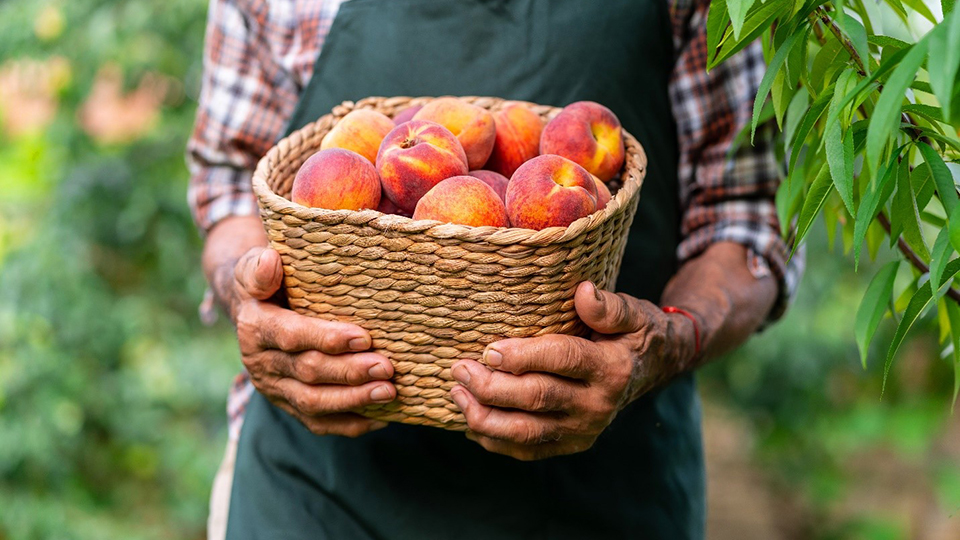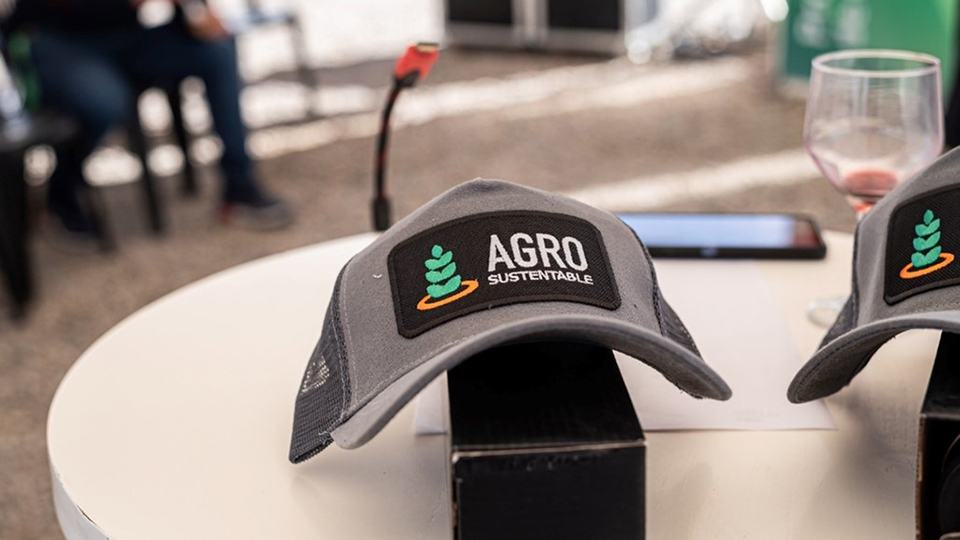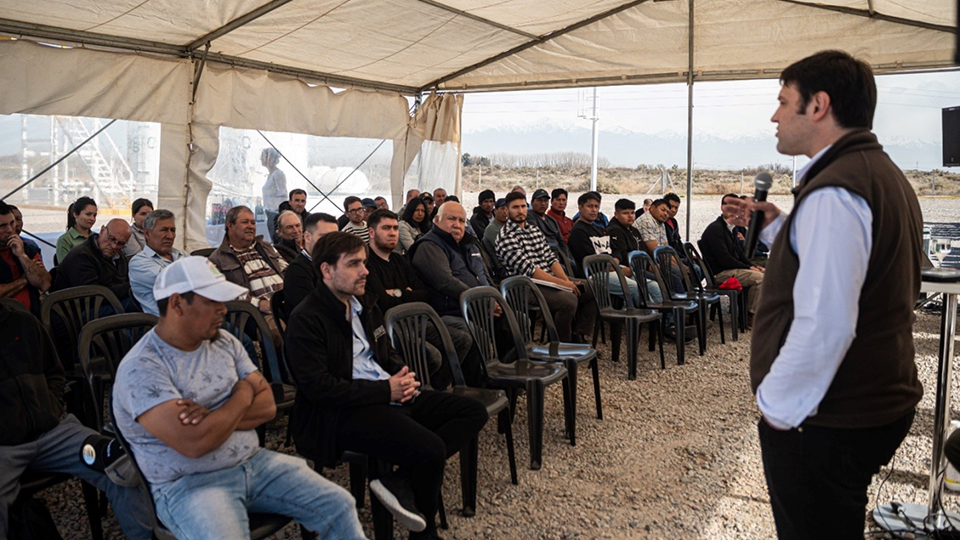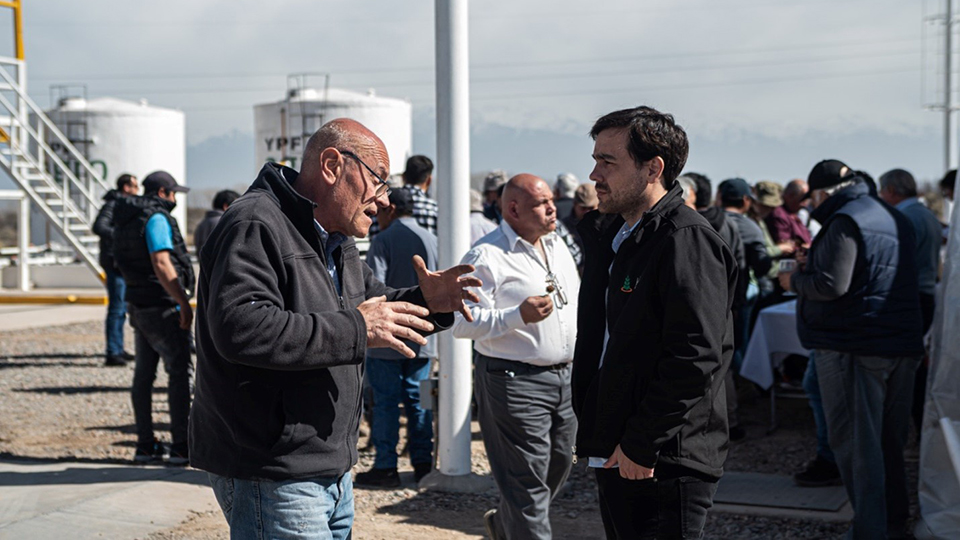

April 22, 2024
As the global population grows, farmers face the dual challenge of increasing food production sustainably and addressing its economic, social, and environmental impacts. The shift towards bio-inputs like biofertilizers and biopesticides – which are natural alternatives to synthetic chemicals – is gaining momentum, fueled by consumer demand for safer, eco-friendly products. Expansion of this market depends on ongoing innovation and proving the effectiveness of these products. Through its climate-smart agriculture project in Latin America, WIPO GREEN is linking stakeholders in Argentina with these innovative, sustainable solutions.
As the world’s population ticks toward an estimated 9.7 billion by 2050, farmers are under pressure to grow more food for more people. It is not just about quantity of food that needs to be produced, but also the manner in which it is produced as well as the impact the food production has on sustainable development. With a global populace increasingly concerned about the economic, social and environmental impacts and safety of their food, the agricultural sector faces a twin challenge: more food, but also sustainable production.

Bio-inputs, an umbrella term for products like biofertilizers and biopesticides that are derived from natural materials rather than synthetic chemicals, have emerged as potential game-changers. In Latin America, the market for these sustainable products is projected to double in the next five to ten years, according to some estimates.
Overall, the agri-sector has seen heightened interest from financial investors, multilateral agencies, and corporates in Latin America. Due to the distinctive agriculture conditions in some countries in the region, localized solutions were needed, limiting the applicability of global technologies. Categories such as agricultural financial technology (agfintech) and biological inputs attracted nearly 74% of the innovation capital invested in the region. Overall, the trend indicates that financial investors, multilaterals, and corporate entities are showing a keen interest in the LATAM agribusiness sector.
Yet, despite this positive signal from the markets, challenges continue to persist. Some farmers are skeptical about the efficacy of bio-inputs when compared to conventional chemicals. Adding to this is the increasing demand for certifications related to a product’s organic and sustainable bona fides. The bio-input industry’s growth will be contingent on continued innovation and rigorous testing.
At the crossroads of this evolving narrative stands Tomás Gomez, a peach producer from the verdant wine-producing province of Mendoza, Argentina. Besides being a farmer, Tomás is also a technical and commercial head of Astié Diesel, a prominent agricultural input distributor in Mendoza.
Tomás dual role at the forefront of both agricultural production and commerce gives him unique insight. “Biologicals will allow me to diversify the products I offer,” he said. “There is a growing demand from my clients for these sustainable solutions.”
As part of the Latin America WIPO Green Acceleration Project in Argentina – funded by the Japan Patent Office in partnership with the founding countries of Argentina, Brazil and Chile, WIPO GREEN sought out partners in Argentina who could meet Tomás requirements and needs: a certified, effective bio-input product, and a willingness to provide guidance on its best use. The search led to Agro Sustentable, a national firm based in Misiones province. Since its inception in 2015, the company has been an advocate for 100% certified organic products, turning research into marketable solutions.

A collaboration was born. Following meetings that delved deep into technical specifications and practical applications, a plan materialized. Agro Sustentable would supply BIOGERT GTG fertilizer and BIOINSECT insecticide to Tomás. He would conduct trials at peach plot, potentially paving the way for more widespread adoption from his main customers, wine producers.
It is still early days, but initial feedback is promising. “I’ve received the first batch of both products from Agro Sustentable, and we are eager to start our trials,” Tomás has said.
Further fostering this burgeoning relationship, an information session was held in Tunuyán, Mendoza, in August 2023. Led by Agro Sustentable’s co-founder, Matias Imperiale, the event was an opportunity to introduce other local producers to the benefits of bio-inputs.

The reception was overwhelmingly positive. “We have made significant strides in a short time,” Tomás remarked. “The organic certification of these products is particularly appealing. We're extremely pleased with the progress.”
This alliance between Tomás and Agro Sustentable is an example of the region’s interest in promoting sustainable agricultural practices. As Latin America becomes a hotspot for bio-inputs, collaborations like this will be crucial in ensuring that the march towards sustainable agriculture is both swift and impactful.

As we witness these shoots of change against the backdrop of fruit and vine-laden terraces, the budding partnership between Tomás and Agro Sustentable underscores a promising promotion of sustainable agriculture in Latin America. With the region poised to become a nexus for sustainable farming solutions, alliances of this nature will play a pivotal role. This will inspire a new generation of producers to adopt more sustainable practices and ensure that the legacy of Mendoza’s agricultural products can continue to contribute to the protection of the environment.
WIPO GREEN’s acceleration projects connects technology and service providers with those seeking innovative solutions. Would you like to participate? Become a user of the WIPO GREEN database – it is easy to use and free of charge.